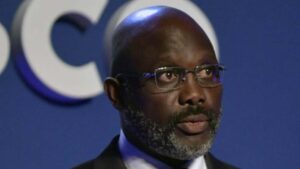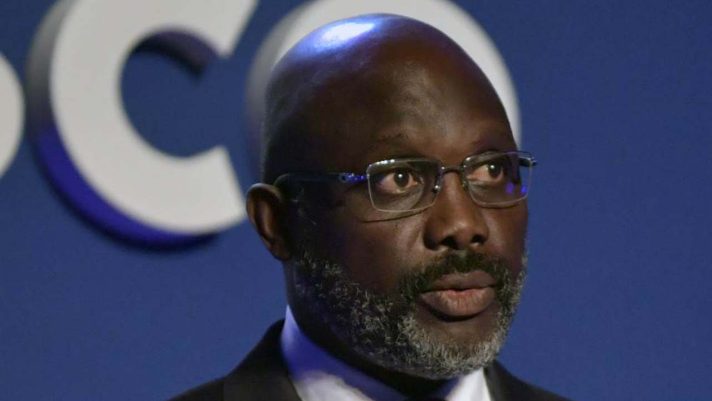
…president Weah accepts defeats, congratulates president-elect
…United States congratulates President-elect Boakai
Ex-VP Joseph Boakai has defeated the sitting president George Weah in the Liberian Presidential Elections.
The 78-year-old Boakai is the leader of the opposition party who lost to President George Weah in the Liberian 2017 presidential election with a large margin of votes.
The 57-year-old President George Weah and the first African footballer to win both FIFA’s World Player of the Year trophy and the Ballon d’Or, after a tight presidential run-off, said it was “time to put national interest above personal interest”.
However, the president-elect Joseph Boakai is an old politician having served as vice president to Ellen Johnson Sirleaf, Africa’s first elected female head of state, from 2006 to 2018.
It was gathered that the latest and nearly complete results showed Boakai leading with nearly 51 per cent of the votes in Liberia, Africa’s oldest republic founded by freed American slaves.
“The results announced tonight, though not final, indicate that… Boakai is in a lead that we cannot surpass,” Weah said in a speech on national radio late on Friday.
He said his CDC party “has lost the election but Liberia has won,” adding: “This is the time for graciousness in defeat”.
With more than 99.5 per cent of the polling stations reporting vote tallies after Tuesday’s second-round vote, Boakai had garnered 50.89 per cent of ballots cast, according to the election commission.
Boakai was 28,000 votes ahead of Weah, according to Friday’s figures. The two finished neck-and-neck in the first round last month, with a national lead of just 7,126 votes for Weah.
Meanwhile, The election of Weah sparked high hopes of change in Liberia, which is still reeling from back-to-back civil wars and the 2014-2016 Ebola epidemic.
But critics have accused his government of corruption and him of failing to keep a promise to improve the lives of the poorest.
The United States congratulated “President-elect Boakai on his victory and President Weah for his peaceful acceptance of the results”.
“We call on all citizens to follow President Weah’s example and accept the results,” US State Department spokesman Matthew Miller said in a statement.
Weah said he had spoken to Boakai “to congratulate him on his victory”.
“The Liberian people have spoken, and we have heard their voice. However, the closeness of the results reveals a deep division within our country,” Weah said in his speech.
“Let us heal the divisions caused by the campaign and come together as one nation and one united people.”
Weah who remains president until the handover of power in January pledged to “continue to work for the good of Liberia”.
It will be the second peaceful handover of power from one democratically elected government to another in two decades.
The elections were the first since the United Nations 2018 ended its peacekeeping mission, created after more than 250,000 people died in the two civil wars in Liberia between 1989 and 2003.
International observers, including the European Union, have commended Liberia for holding a peaceful election.
Regional bloc ECOWAS, the Economic Community of West African States, said the poll was “largely” peaceful, but noted isolated incidents that led to “injuries and hospitalisations” in four provinces.
Clashes during the campaign left several dead before the first round and raised fears of post-election violence.
Around 2.4 million Liberians were eligible to vote on Tuesday and the turnout was roughly 66 per cent, according to the Electoral Commission website.
Liberia is home to around five million people and is one of the poorest countries in the world.
More than a fifth of the population lives on less than $2.15 a day, according to the World Bank.
